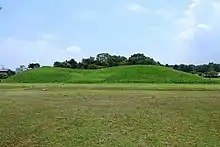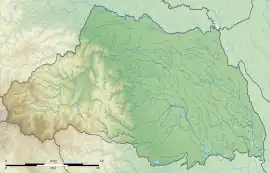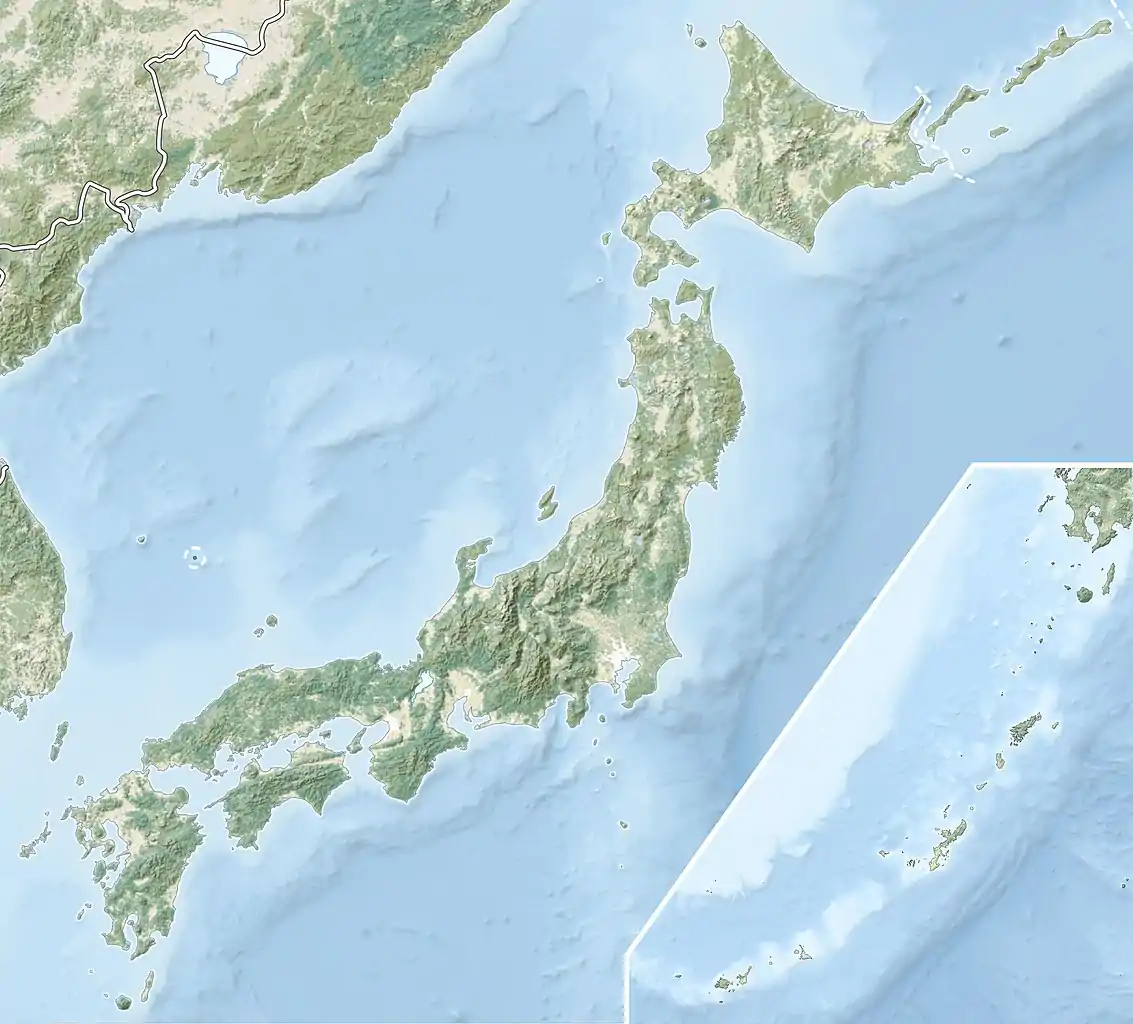瓦塚古墳 | |
 Kawarazuka Kofun | |
 Kawarazuka Kofun  Kawarazuka Kofun (Japan) | |
| Location | Gyōda, Saitama, Japan |
|---|---|
| Region | Kantō region |
| Coordinates | 36°7′29.62″N 139°28′37.6″E / 36.1248944°N 139.477111°E |
| Type | Kofun |
| History | |
| Founded | 6th-7th century AD |
| Periods | Kofun period |
| Site notes | |
| Public access | Yes |
The Kawarazuka Kofun (瓦塚古墳) is a kofun burial mound located in the city of Gyōda, Saitama Prefecture, in the Kantō region of Japan. The tumulus was designated a National Historic Site in 1938 and re-designated as a Special National Historic Site of Japan in 2020 as part of the Sakitama Kofun Cluster.[1]
Overview
The Kawarazuka Kofun has a total length of 73 meters, and is the sixth largest tumulus in the Saitama Kofun Cluster. It is a zenpō-kōen-fun (前方後円墳), which is shaped like a keyhole, having one square end and one circular end, when viewed from above. As with the other keyhole-shaped tumuli in this cluster, the Kawarazuka Kofun had a rectangular double moat. A large number of haniwa have beenexcavated from this tumulus, including haniwa shaped as houses, waterfowl, men with shields, boys playing musical instruments leading horses, and girls with necklaces, from which a glimpse of the clothes, hairstyles, and festivals of the Kofun period can be deduced. The tumulus dates from the first half of the 6th century AD.
The tumulus has been reconstructed, and is located immediately in front of the Saitama Prefectural Museum of the Sakitama Ancient Burial Mounds (埼玉県立さきたま史跡の博物館, Saitama Kenritsu Sakitama Shiseki no Hakubutsukan) .
- Overall length
- 73 meters
- Posterior circular portion
- 36.5 meter diameter x 5.1 meter high
- Anterior rectangular portion
- 47 meters wide x 4.9 meters high
See also
References
- ↑ "埼玉古墳群" [Saikitama Kofun Cluster] (in Japanese). Agency for Cultural Affairs. Retrieved August 31, 2020.
External links
![]() Media related to Kawarazuka Kofun at Wikimedia Commons
Media related to Kawarazuka Kofun at Wikimedia Commons
- Gyoda city home page (in Japanese)
- Museum of the Sakitama Ancient Burial Mounds (in Japanese)